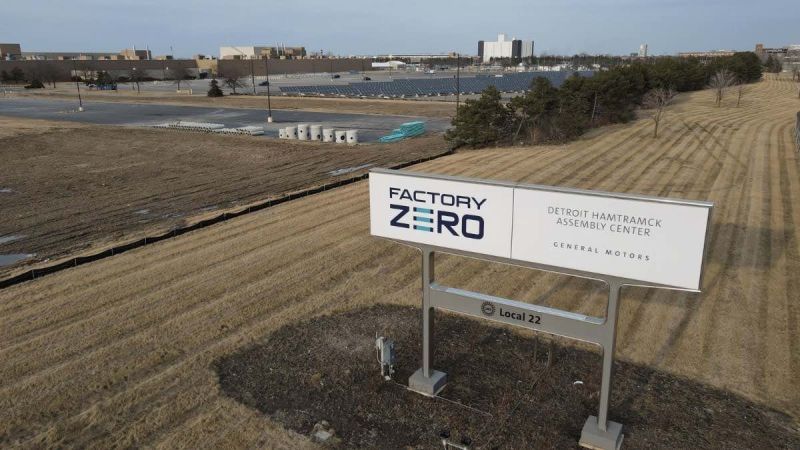The global automotive landscape is witnessing a rapid shift towards electric vehicles (EVs) as the world strives for a greener future. Electric cars have gained popularity due to their promise of reduced emissions and improved air quality. Central to this transformation is the remarkable development and deployment of advanced battery technologies that power these vehicles. In this article, we embark on a journey to explore the origins of EV batteries, shed light on the growing demand for electric vehicles, and critically assess the environmental impact of battery mining and production compared to traditional oil extraction and refining.
The Rise of Electric Vehicles and the Push for Market Expansion:
The popularity of electric vehicles has soared in recent years, driven by several factors. Concerns over climate change and the need to reduce greenhouse gas emissions have pushed governments, automakers, and consumers to embrace sustainable transportation alternatives. EVs offer a promising solution with their zero tailpipe emissions, contributing to cleaner air and reduced carbon footprints. Additionally, advancements in battery technology have improved driving range and charging infrastructure, addressing the limitations that previously hindered widespread adoption. Governments worldwide have implemented supportive policies, such as tax incentives and subsidies, to encourage the transition to electric mobility and accelerate the growth of the EV market.

Unraveling the Battery Supply Chains:
To understand the true environmental impact of electric vehicles, it is essential to trace the origins of their batteries. Key elements such as lithium, cobalt, and nickel play crucial roles in battery composition. These materials are often mined from various regions globally, raising concerns about the environmental consequences associated with extraction. Mining operations can adversely impact ecosystems, including deforestation, water pollution, and habitat destruction. However, efforts are underway to improve mining practices and promote responsible sourcing to minimize the environmental footprint of battery supply chains.
The Carbon Footprint Debate: Battery Production vs. Oil Extraction:
A critical question emerges: are battery mining and production genuinely less harmful than traditional oil extraction and refining? While EVs emit no tailpipe emissions during operation, producing electric vehicle batteries can have a significant carbon footprint. Manufacturing batteries requires substantial energy inputs, and the extraction and processing of raw materials contribute to greenhouse gas emissions. However, it is important to note that battery production emissions can be offset over the lifetime of an EV through lower emissions during use compared to conventional internal combustion engine vehicles. On the other hand, traditional oil extraction and refining processes release substantial carbon dioxide and pollutants into the atmosphere, contributing to climate change and air pollution.
Understanding the Environmental Trade-Off:
It is essential to recognize that both electric vehicles and traditional gasoline-powered vehicles have environmental impacts, albeit in different ways. Electric vehicles offer the potential to reduce greenhouse gas emissions and improve air quality during operation. However, the production of batteries and the extraction of raw materials pose their own set of environmental challenges. On the other hand, internal combustion engine vehicles heavily rely on fossil fuel extraction and refining, leading to significant carbon emissions and air pollution. Achieving a sustainable future requires comprehensive life cycle assessments encompassing all vehicle production, operation, and end-of-life management stages.

Conclusion:
In pursuing a greener automotive future, electric vehicles have emerged as a promising solution, offering the potential to reduce emissions and improve air quality. However, their batteries' origins reveal a complex and multi-faceted environmental puzzle. While EVs provide a viable alternative to traditional gasoline-powered vehicles, the environmental impact extends beyond tailpipe emissions. Battery mining and production come with their own set of challenges, including resource extraction and carbon footprint. On the other hand, oil extraction and refining contribute to carbon emissions and air pollution. Both vehicle types have their trade-offs, and achieving true sustainability requires a holistic approach that considers the entire lifecycle, from production to disposal. It is crucial to continue investing in research and development, advancing battery technologies, improving mining practices, and transitioning to cleaner energy sources to mitigate the environmental impact of electric vehicles. Ultimately, the path to a sustainable automotive industry lies in a comprehensive understanding of the complexities and trade-offs associated with electric and gasoline-powered vehicles, striving for continuous improvement in environmental performance.
Thank you for embarking on this journey with us. Together, let's continue exploring, discovering, and unlocking new horizons. Stay tuned for more captivating content to fuel your curiosity and inspire your imagination. We appreciate your readership and look forward to you joining us on our next adventure. Until then, keep dreaming, reading, and coming back for more!
Also, watch Toyota suddenly bringing its BZ4X electric SUV concept to the United States on Torque News Youtube channel, and please subscribe to us on Youtube and follow on Twitter for daily Toyota and EV news reports.
Image source: Peter Neilson
Peter Neilson is an automotive consultant specializing in electric cars and hybrid battery technologies. He holds a Bachelor of Science in Automotive Service Technology from Weber State University. Peter can be reached on Linkedin and you can tweet him at The_hybrid_guy on Twitter. Find his page on Facebook at Certified Auto Consulting. Read more of Peter's stories at Toyota news coverage on Torque News. Search Toyota Prius Torque News for more in-depth Prius coverage from our reporter.
Set as google preferred source











